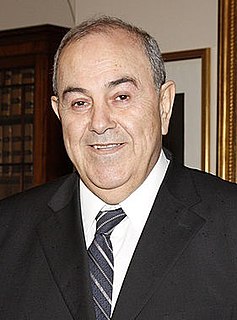A Quote by Richard Attenborough
I lived in an atmosphere where Mama brought 60 Basque refugee children to England during the Spanish Civil War in the 1930s.
Related Quotes
I went through the communist children's movement at the age of nine, in 1930, and into the Young Communist League in 1936. The Spanish civil war brought me back. I'd already broken with the communists - or the Stalinists, more precisely - in 1935. But the civil war in Spain and the desire to aid the remarkable people struggling against Fascism brought me back to the Young Communist League, so that I could effectively participate, however far removed from Spain, in their struggle. By 1938 I was ready to be expelled. By 1939 I was expelled.
The World War I, I'm a child of World War I. And I really know about the children of war. Because both my parents were both badly damaged by the war. My father, physically, and both mentally and emotionally. So, I know exactly what it's like to be brought up in an atmosphere of a continual harping on the war.
The intelligence community is so vast that more people have top secret clearance than live in Washington. The U.S. will spend more on the war in Afghanistan this year, adjusting for inflation, than we spent on the Revolutionary War, the War of 1812, the Mexican-American War, the Civil War and the Spanish-American War combined.
I went to live in Barcelona in 1975, when I was twenty. Even before I went there, I knew more about the Spanish Civil War than I did about the Irish Civil War. I liked Barcelona, and then I grew to like a place in the Catalan Pyrenees called the Pillars, especially an area between the village of Flavors and the high mountains around it.
... there was the first Balkan war and the second Balkan war and then there was the first world war. It is extraordinary how having done a thing once you have to do it again, there is the pleasure of coincidence and there is the pleasure of repetition, and so there is the second world war, and in between there was the Abyssinian war and the Spanish civil war.
The Fourteenth Amendment, after the civil war, in principle brought former slaves into the category of persons, theoretically. But if you actually look, almost all the cases brought up for personal rights under the Fourteenth Amendment were by corporations. Freed slaves couldn't do it. In fact they were pretty much driven back into something like slavery by a north - south compact, that allowed former slave states to criminalize black life, which made a criminal force that was basically used as a forced labor force, up until the 1930s.
Some 2,800 Americans went to Spain [during the Spanish Civil War], and it was, by far, the largest number of Americans before or since who've ever joined somebody else's civil war. I think they were primarily people who were deeply alarmed by the menace of fascism. They saw this on the horizon. I quote one volunteer, Maury Colow of New York, who said, "for us it was never Franco, it was always Hitler."
I think in many ways, the Spanish Civil War was the first battle of World War II. After all, where else in the world at this point did you have Americans in uniform who were being bombed by Nazi planes four years before the U.S. entered World War II? Hitler and Mussolini jumped in on the side of Francisco Franco and his Spanish nationalists, sent them vast amounts of military aid, airplanes, tanks - and Mussolini sent 80,000 ground troops as well - because they wanted a sympathetic ally in power. So I think it really was the opening act of World War II.
After the Spanish Civil War against Franco, a group of us got together: a group of well-to-do people who were sympathetic to the lost cause of a Republican state. We bought a convent in Toulouse and converted it into a hospital run by the Unitarians. It took care of the Spanish refugees who fled to Toulouse.

































